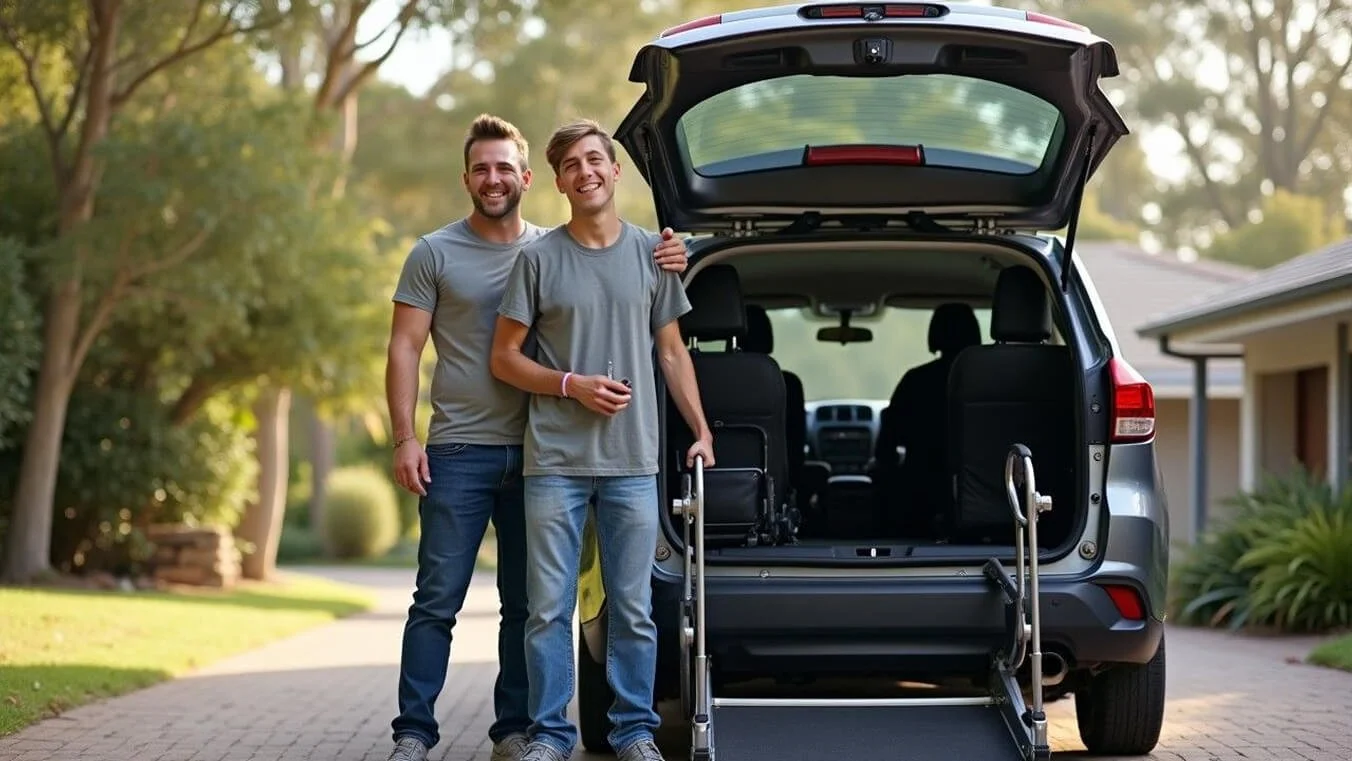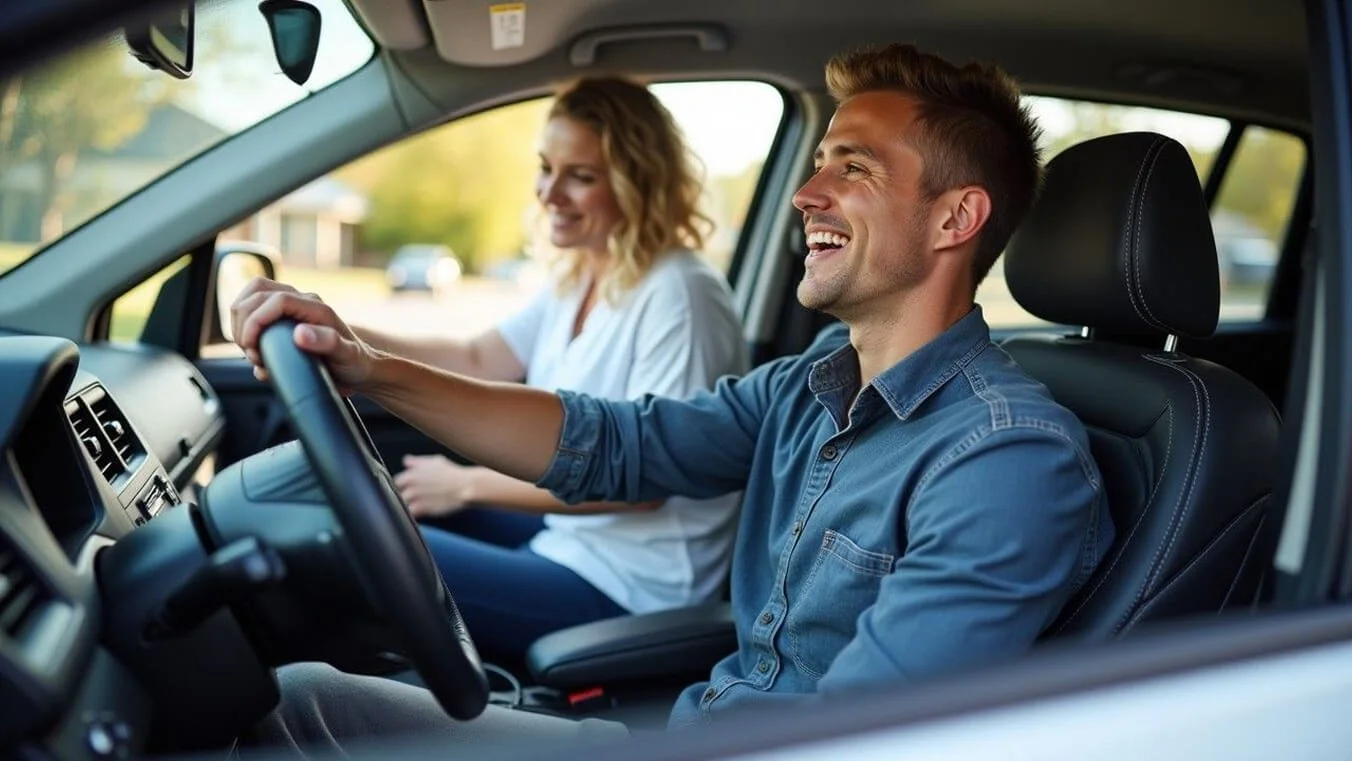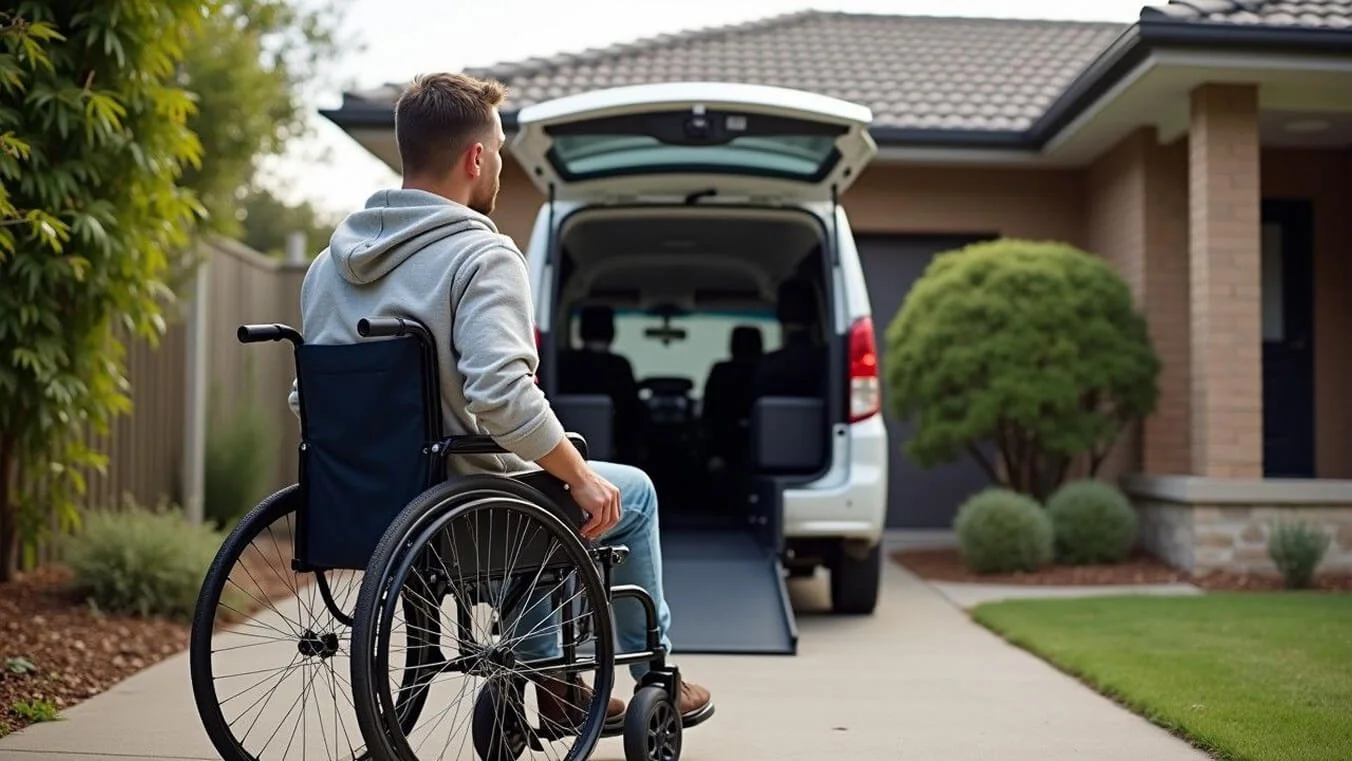DVA Vehicle Assistance Scheme: Vehicle Modifications & Support
Struggling to stay independent behind the wheel after service? If a service-related injury makes driving a standard car unsafe, the DVA vehicle assistance scheme can help with clinically required modifications, vehicle purchase support, and running costs. This guide explains the two pathways: the Vehicle Assistance Scheme (VAS) under the VEA for service before 2004, and the Motor Vehicle Compensation Scheme (MVCS) under the MRCA for service after June 2004. This way, you know which applies and what funding you may access. Keep reading to learn what DVA may fund and how to apply, with clear steps and links to official policy.
Start Your DVA Claim Today
Get expert help to navigate the claim process and secure the compensation you deserve. With zero upfront fees, you only pay for successful claims.
Exploring the DVA Vehicle Assistance Scheme
The Department of Veterans' Affairs operates two distinct vehicle assistance programs designed to help veterans maintain mobility when service-related conditions create barriers to safe driving or vehicle use.
Vehicle Assistance Scheme (VAS)
According to the DVA guidelines on the Vehicle Assistance Scheme, VAS provides support to veterans whose service-related injuries accepted under the Veterans' Entitlements Act 1986 have severely reduced their mobility. This scheme applies to veterans whose service occurred before 1 July 2004.
The VAS eligibility criteria are strict. DVA's Vehicle Assistance Scheme policy documentation specifies that eligible conditions include:
Both legs were amputated above the knee
One leg amputated above the knee, with the other leg amputated at or above the ankle and one arm amputated at or above the wrist
One leg was amputated above the knee, and both arms were amputated at or above the wrists
Complete paraplegia prevents standing or walking
Conditions accepted by DVA as having similar severity and effect.
A leg that is wholly or permanently useless above the knee counts as an amputation above the knee for VAS purposes. The original scheme replaced the Gift Car Scheme established in 1950, and its core intention has not changed: to help severely mobility-impaired veterans maintain independence.
Motor Vehicle Compensation Scheme (MVCS)
The Motor Vehicle Compensation Scheme, determined under Section 212 of the MRCA 2004, takes a more flexible approach to eligibility. This scheme applies to current and former ADF members whose service occurred after 30 June 2004.
According to DVA's MVCS policy, you need an accepted MRCA condition that affects safe, comfortable driving or travel, and you must benefit from vehicle use at least twice a week.
This broader eligibility helps many more veterans access support. Whether you're managing chronic pain, limited mobility from orthopaedic injuries, or other service-related impairments, MVCS can potentially assist you if your condition affects vehicle use. Our Permanent Impairment Claims service helps veterans establish accepted conditions under MRCA, which forms the foundation for MVCS eligibility.
Who Is Eligible for Vehicle Assistance
Eligibility requirements differ significantly between the two schemes, with MVCS offering more flexibility for veterans with MRCA-accepted conditions.
VAS Eligibility Requirements
Beyond meeting the severe physical impairment criteria outlined above, VAS applicants must have the capacity to derive personal benefit from the assistance, though they don't need to drive the vehicle themselves.
You must not be receiving DVA's Recreation Transport Allowance or Mobility Allowance from the Department of Human Services.
You cannot pursue claims under any other compensation scheme at the Territory, State, or Commonwealth level.
Finally, you cannot be a serving ADF member when lodging your VAS application.
Either you, your partner, or your carer must hold a valid driver's license. This requirement ensures someone can safely operate the modified vehicle.
MVCS Eligibility Requirements
As outlined in DVA's MVCS eligibility policy, MVCS requires that you've suffered impairment from an injury or disease for which DVA has accepted liability under MRCA. This impairment must result in your inability to drive or be driven safely and comfortably without vehicle modifications.
The twice-weekly benefit requirement considers both your physical and mental health needs, and evaluates your level of mobility without vehicle access. This requirement ensures the assistance genuinely improves your quality of life and independence.
Importantly, MVCS is available to serving members, reservists on Continuous Full-Time Service, part-time reservists, and ADF Cadets, Officer of Cadets, and Instructors of Cadets. This broader scope helps many more veterans access vehicle support when they need it.
A person will not be entitled to compensation if:
They are a resident of a care institution and are not capable of leaving that institution (a "care institution" means a residential care facility, a hospital, a hospice, a psychiatric institution, or any similar institution that provides daily care for the person, but does not include the person's private home); or
They receive or have received, within 5 years before applying for compensation under the MVCS, under any other law, contract, agreement or understanding: a payment or other assistance for purchasing or using a motor vehicle.
What the DVA Vehicle Assistance Scheme Covers
Both schemes provide comprehensive support for vehicle-related needs, though the extent of coverage varies depending on individual circumstances and the specific scheme.
Vehicle Modifications
Under DVA policy, vehicle modifications are considered under the relevant vehicle scheme first; where they cannot be provided, RAP may assist:
Modifications include equipment to assist with transfers, manual wheelchair transport (by way of hoists), seating needs, customised driving controls and other related devices.
Modifications can be provided where there is a medically assessed need due to a war-caused injury or accepted disability. Requests are initiated and assessed by a certified driver-trained occupational therapist, and prior approval is required before assessment or installation.
Manual vehicles will not usually be converted to automatic under RAP; such cases should be considered under the appropriate vehicle scheme.
Vehicle Purchase Assistance
Under VAS, DVA can provide eligible veterans with a motor vehicle, fund necessary modifications and driving devices, and approve replacement vehicles when required.
If your existing vehicle is assessed as too old, technically unsuitable, not cost-effective, or unsafe to modify, you may purchase a suitable vehicle at your own cost, and DVA will compensate you for the approved modifications (not the vehicle itself).
For example, suppose you require an automatic transmission but own a manual vehicle that cannot be safely converted. In that case, DVA may cover the difference in cost between the manual and automatic versions of your chosen vehicle.
Running and Maintenance Allowance
Under VAS, an annual allowance is available for running and maintenance costs.
Each year, you must provide the required documents (vehicle registration, compulsory third-party and comprehensive insurance, and the relevant driver’s licence) before payment is made.
You must have been provided an initial or replacement VAS vehicle to receive the running and maintenance allowance, and vehicle modifications funded under VAS are for VAS vehicles.
The Driver Trained Occupational Therapist Assessment
A professional assessment by a Driver Trained Specialist Occupational Therapist is central to MVCS decisions and is required for VAS driving devices and vehicle modifications.
Why the OT Assessment Is Required
As specified in DVA's policy on motor vehicle modifications provision, the Driver Trained Specialist OT assessment confirms that your level of impairment prevents you from driving or being driven safely and comfortably without modifications, and that you'll derive benefit from a suitably modified vehicle.
Driver Trained Specialist Occupational Therapists work at large rehabilitation centres in most Australian capital cities.
You can locate qualified therapists through the Occupational Therapist Association website for each state and territory, or through your state or territory's Road Traffic Authority website.
Before any assessment is organised, prior approval from DVA is required.
If you already work with a driver-trained occupational therapist, include their details in your claim form.
DVA will advise whether they'll arrange an assessment and will help coordinate this if required.
What to Expect During the Assessment
Assessments commonly comprise two main components:
Clinical off-road assessment: Includes a comprehensive review of cognitive, visual, and physical skills required for driving. The OT examines how your medical condition impacts these abilities in a controlled clinic environment.
On-road assessment: May follow, conducted in an appropriate vehicle and may include a qualified driving instructor and the Driver Trained Occupational Therapist. This practical assessment may occur over a representative route including controlled and uncontrolled intersections, roundabouts, give-way and stop signs, pedestrian crossings, and multi-lane roads. The OT observes your performance in real-life traffic conditions of varying complexity.
Following the assessment, the outcome is discussed with you:
The OT provides a written summary on completion, and a comprehensive written report is provided; timelines may vary.
This report may be provided to DVA, your treating medical practitioner, and other recipients as agreed at the assessment's commencement.
The report details your clinical needs, recommends specific modifications or driving devices, and ideally includes recommendations based on trial driving tests with suitable vehicles.
How to Apply for DVA Vehicle Assistance
The application process differs between schemes, but both require thorough documentation and professional assessment.
Application Process for VAS
Complete the Application for Vehicle Assistance Scheme form, carefully following all instructions for additional documentation.
Send your application with supporting documents by email or by post.
As DVA's Vehicle Assistance Scheme application guidelines emphasise, do not sign any contract for a vehicle until DVA confirms your eligibility. This critical requirement protects you from financial commitments before approval.
DVA may arrange a Driver Trained Occupational Therapist to undertake your assessment. This assessment allows the therapist to identify the most suitable vehicle for your needs. If you already have a driver-trained occupational therapist, include their details in your claim form. DVA will advise if an assessment is required and will help arrange it.
DVA will assess your application and notify you of the outcome in writing. If approved, they'll explain the next steps. The driver-trained occupational therapist will help you find the most suitable vehicle and obtain quotes for the selected model.
Application Process for MVCS
According to DVA's MVCS claims policy, there is no specific claim form for MVCS. You can claim Vehicle Modifications on the MRCA Claim Form D2051, providing a letter requesting compensation under MVCS, or signing a completed needs assessment conducted when DVA accepts liability for a service-related injury or disease.
Our guide on how to make a DVA claim provides step-by-step guidance for submitting claims properly. Getting your documentation right from the start prevents delays and strengthens your application.
Where the impairment hasn't yet stabilised or isn't assessed as permanent, DVA may provide short-term assistance until your ongoing level of impairment is known. This short-term assistance often takes the form of taxi services, particularly important when transport difficulties create barriers to employment, treatment, or reintegrating structure into your life.
Common Challenges and How to Overcome Them
Veterans often encounter obstacles during the vehicle assistance application process. Knowing the common issues and how to address them helps you prepare effectively.
Application Delays
Timeframes vary: Processing depends on claim complexity, completeness of information, and how quickly assessments and evidence are provided. Avoid relying on fixed durations.
Assessment and report timing differ by provider: Driver-trained OT assessments and reports do not have a standard DVA timeline, so allow time for booking, assessment, and DVA review.
Reduce delays with complete, consistent evidence:
Provide clear medical and service records that link your accepted condition to driving or being driven.
Ensure the driver-trained OT report specifies clinically necessary modifications and the expected benefit.
Submit accurate supplier quotes that match the OT recommendations (parts, installation, training, warranties).
Include current licence, registration, and insurance documents when requested.
Seek written approval before purchasing a vehicle or booking modifications.
Denied Applications
When the criteria are not met:
MVCS: Evidence must show you cannot drive or be driven in safety and reasonable comfort without modifications and that you can derive benefit from using the vehicle at least twice a week.
VAS: Eligibility is strict and prescriptive; ineligibility can include receiving Recreation Transport Allowance or Mobility Allowance, or not meeting the severe impairment criteria.
You can request a review of the decision and submit additional evidence or clarification.
How Veterans First Consulting Can Help
We specialise in helping veterans access the DVA benefits they've earned through service.
Our comprehensive DVA claims services focus on getting your claim right from the start. We understand both VAS and MVCS requirements, and we know what documentation and evidence DVA needs to approve vehicle assistance.
For MRCA veterans, establishing accepted conditions forms the foundation for vehicle assistance eligibility. We guide you through the permanent impairment claims process, ensuring your service-related conditions are appropriately documented and acknowledged by DVA. Once you have accepted the conditions, we can help you pursue vehicle assistance through MVCS.
Many veterans qualify for additional benefits beyond vehicle assistance. Our Gold and White Cards service helps veterans access comprehensive healthcare coverage. Veterans who reach 60 or more MRCA impairment points become eligible for a Gold Card, providing extensive medical benefits alongside vehicle assistance.
We work with you throughout the application process, from initial eligibility assessment through to approval and implementation. Our expertise with MRCA legislation and DVA processes helps you avoid common pitfalls and delays.
FAQs: DVA Vehicle Assistance
-
Yes, if you're seeking assistance under MVCS. Serving members, reservists on Continuous Full-Time Service, part-time reservists, and ADF Cadets, Officer of Cadets, and Instructors of Cadets can access MVCS if they have an accepted MRCA condition affecting their ability to drive or be driven safely. However, VAS specifically excludes serving ADF members at the time of application.
-
No. Both VAS and MVCS recognise that some veterans cannot drive due to their conditions. If you have a partner or carer who will regularly drive you in the vehicle, DVA will consider your application. The key requirement is that you derive benefit from using the vehicle, whether as a driver or passenger. You, your partner, or your carer must hold a valid driver's license.
-
The process typically takes several months from application to final approval and implementation. The Driver Trained Occupational Therapist assessment and report takes 10 to 15 working days. DVA must then review the assessment, make a determination on eligibility, and if approved, arrange for modifications or vehicle assistance. Total timeframes vary depending on your individual circumstances, the complexity of changes required, and current DVA processing workloads. Working with experienced DVA claims specialists and ensuring complete, accurate documentation from the start helps minimise delays.
-
Under MVCS, if your current vehicle is assessed as too old, technically unsuitable, not cost-effective, or unsafe to modify, you can purchase a suitable vehicle at your own cost. DVA will then compensate you for the approved modifications to that new vehicle. The compensation covers the modification costs only, not the vehicle's base purchase price. Your Driver Trained Occupational Therapist's assessment will determine whether your existing vehicle can be safely modified or whether a different vehicle is required.
Your Path to Improved Mobility Starts Here
DVA's vehicle assistance schemes offer real support when service-related conditions affect your mobility. Know which scheme fits your service, gather the proper evidence, including a driver-trained OT recommendation, and follow DVA's steps to avoid delays. If mobility is limiting your independence, we can help you prepare and lodge the DVA claim that is right for you. Contact Veterans First Consulting today to start your claim.
Simplify Your DVA Claim: Get the Compensation You Deserve
Veterans First Consulting is here to guide you. Leave us a message, and a team member will reach out to discuss your new claim or reassessment. With zero upfront fees, you only pay for successful claims. Fill out the form below to get started.




